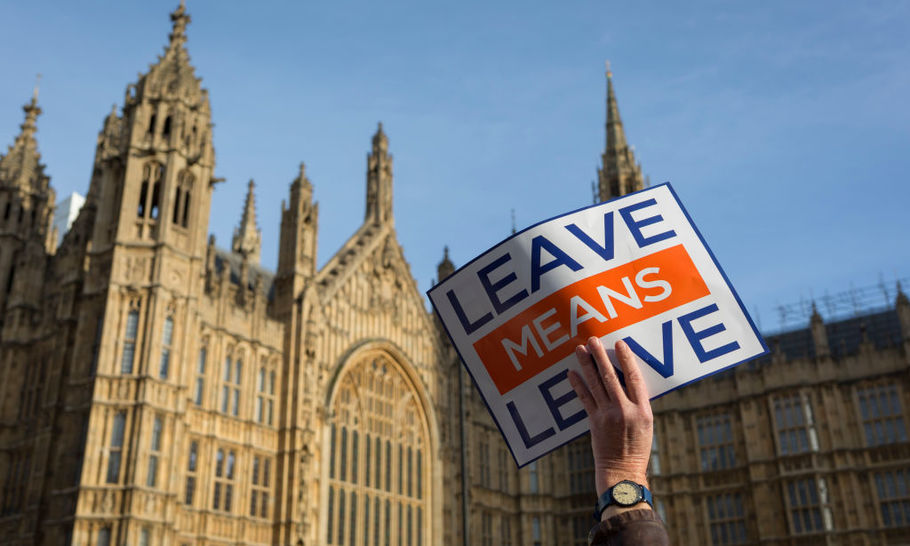Even Brussels believes in Brexit now. But can Boris still be stopped?

It is now admitted on all sides that the Johnson Government is serious about leaving the EU on or before October 31, do or die. The markets have already factored in a no deal scenario. Even in Brussels, where the caricature of Boris the buffoon has been laughed at for decades, nobody is laughing now. Instead, the Commission is preparing for its self-fulfilling prophecy of a “disorderly” Brexit.
Here in London, however, hope springs eternal in the corridors of power that somehow Brexit can be prevented. But the mandarins are quaking. If Boris is seen as a sinister clown, his eminence grise Dominic Cummings is the vampire of Whitehall.
Dom the Impaler has indeed spread terror in Remania. He has threatened special advisers who leak to the press with a cruel and unusual punishment: they will be “fired on the spot”. Permanent secretaries quail at the thought that their gold-plated pensions might be in peril. Downing Street’s Nosferatu will stop at nothing: word has it that he will even go for their gongs.
If the Whitehall resistance has been temporarily disarmed, in Westminster the last ditchers are readying themselves for a constitutional Armageddon. In this cosmic struggle, the role of the dark angel is played by Dominic Cummings, while the angel of light is St Dominic Grieve.
As befits his name, Grieve invariably denounces his own party more in sorrow than in anger. He has been expostulating on a nightmare scenario. When Parliament returns in September, St Dominic and other angels of our better nature cause the Government to lose a vote of confidence (called by Jeremy Corbyn for rather less saintly motives). But the Prime Minister refuses to resign.
“It would be utterly extraordinary,” according to the former Attorney General (who has only just noticed that almost everything about Brexit is extraordinary), “for a Prime Minister to refuse to leave office when he has lost a vote of confidence and there is an alternative individual available [and] able to form an administration.”
But there would be nothing unconstitutional about Boris Johnson continuing in office until a general election had taken place. Indeed, the Fixed Term Parliaments Act doesn’t stipulate that he would have to resign. Rather, the Act says that unless a vote of confidence has been passed within 14 days, an election is automatically triggered. And the date of that election is, by convention, at the discretion of the incumbent Prime Minister. So Boris could run down the clock and go to the country after October 31.
Downing Street sources (meaning he who must not be named but invariably is, i.e. Cummings) are briefing lobby correspondents to this effect. And there is little that the massed forces of “constitutional experts” can do about it. A legal challenge would take too long, even if the courts agreed that it was a proper matter for judicial review, and it probably fail anyway. The British constitution leans heavily in favour of keeping the show on the road, provided that the executive can be held to account in an election.
What about the convention that dictates that a caretaker government can take no irrevocable decisions, and so Brexit should be postponed until after an election? No such obligation exists. Parliament voted to invoke Article 50 — and we have the arch-Remainer Gina Miller to thank for the judicial ruling that mandated this vote — and only Parliament can revoke it. There is no chance of that happening. By the time voters go to the polls, Boris would be able to tell them that he had carried out their orders in the referendum. On that basis, he is gambling that he would sweep the country.
The idea that the Government will fall and Brexit will be stopped by Parliament is looking implausible. What’s left? Remainers’ last line of defence is the Sovereign. By refusing to resign after losing a confidence vote, wouldn’t Boris be dragging the Queen into politics? To this the answer is clearly: no. She does not need to be involved — unless the Opposition insists on doing so. They could claim, as Grieve suggests, that another individual (as yet unspecified) might command a majority to form a “government of national unity”. But the Queen does not take advice from MPs. She is advised by her ministers. And Boris would be under no obligation to advise her to send for anyone else.
It might be desirable to have a group of privy councillors, as Lord Sumption suggested a few weeks ago, with the right to advise the monarch on such constitutional matters. At the moment, however, such a body does not exist.
Hence we are back where we started. Brexit will happen, for good or ill, because the country voted for it in 2016. Polls suggest that most ordinary people long ago accepted that result. Not so the angelic host in Whitehall and Westminster, the BBC and Channel Four, the FT and the Economist, the churches and the universities, the City and the professions. How much longer can they hold out? Will we witness a general strike of the elites against the rest? Of the anywheres against the somewheres? Or will the country pull itself together and just move on?





